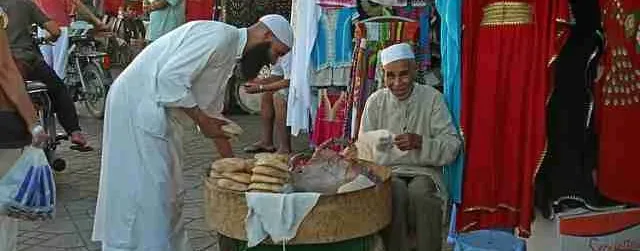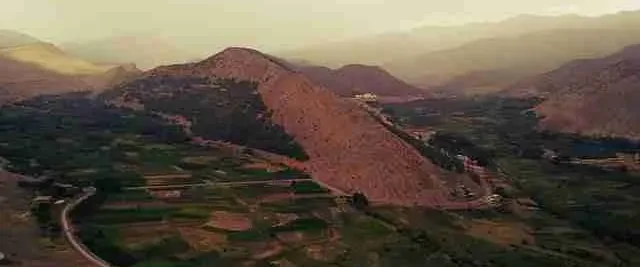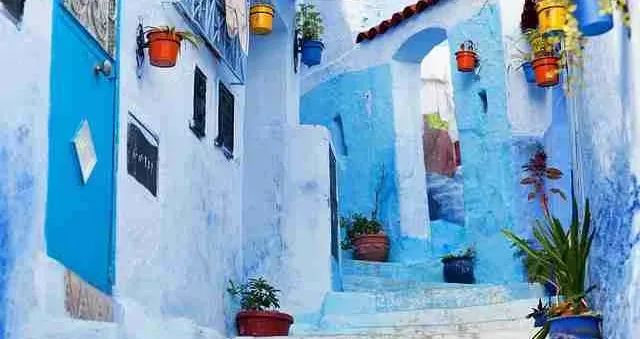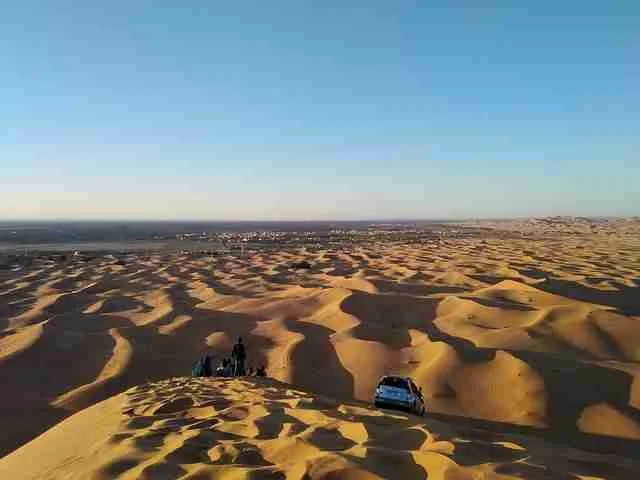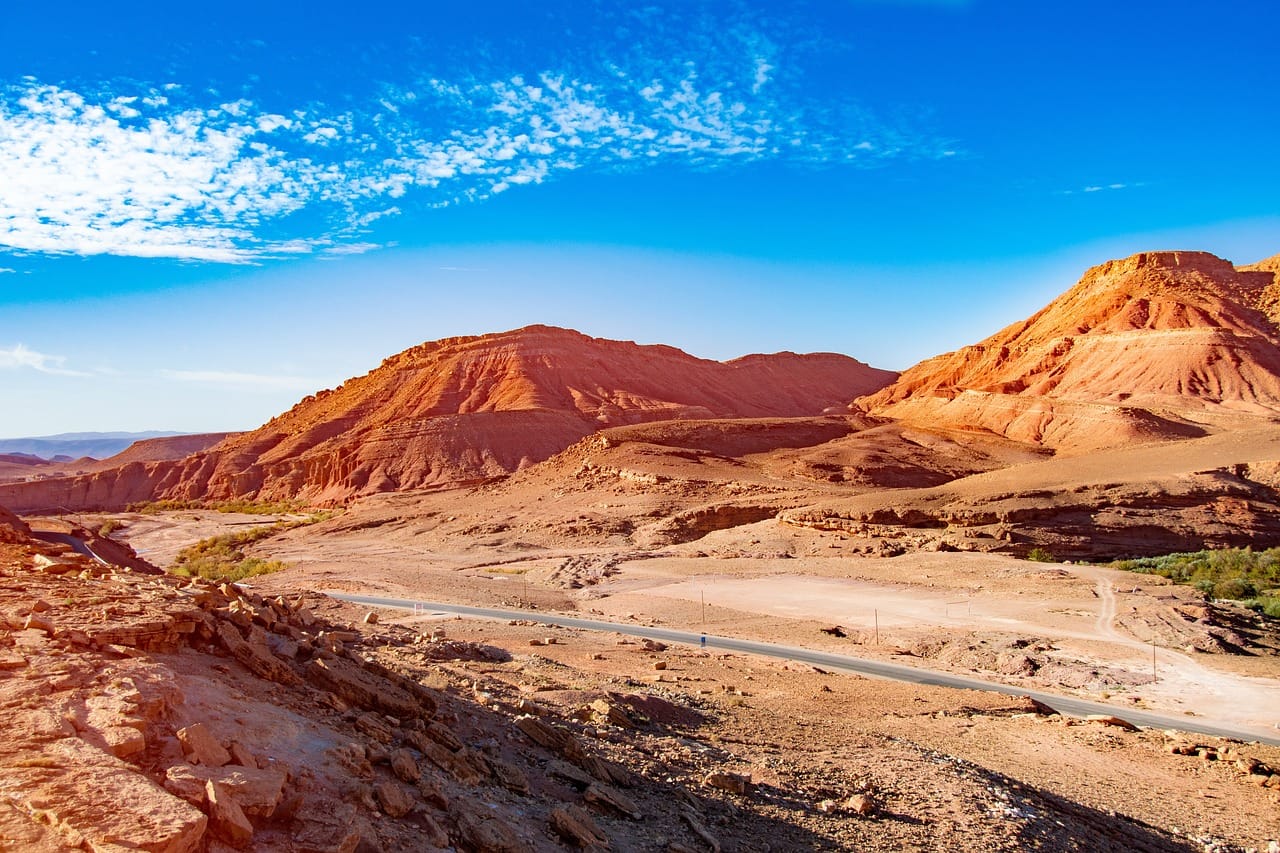
West Africa Overland - Marrakech to Cotonou
Embark on an epic 56-day West Africa overland adventure from Marrakech to Cotonou, exploring vibrant cultures, stunning landscapes, and unforgettable experiences
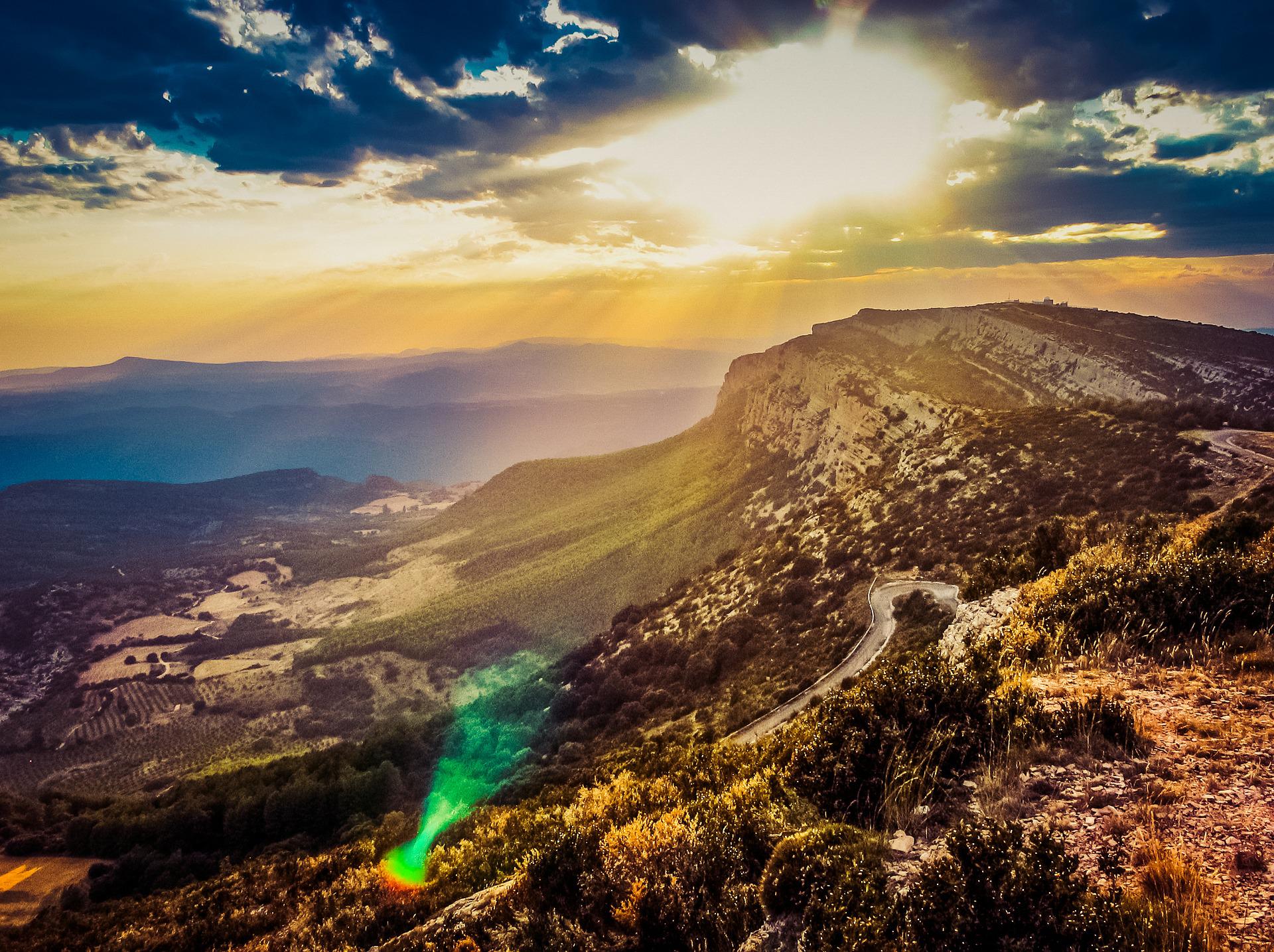
Authentic Morocco Escorted Tour
Join this 8 day journey through the heart of Morocco, where the echoes of ancient empires reverberate in the four imperial cities: Marrakech, Rabat, Meknes, and Fes.

Food and Wine Adventure in Morocco
A 10 day escorted tour, the Food and Wine Adventure in Morocco tour travels from Casablanca to Marrakech, exploring the culinary delights in between.
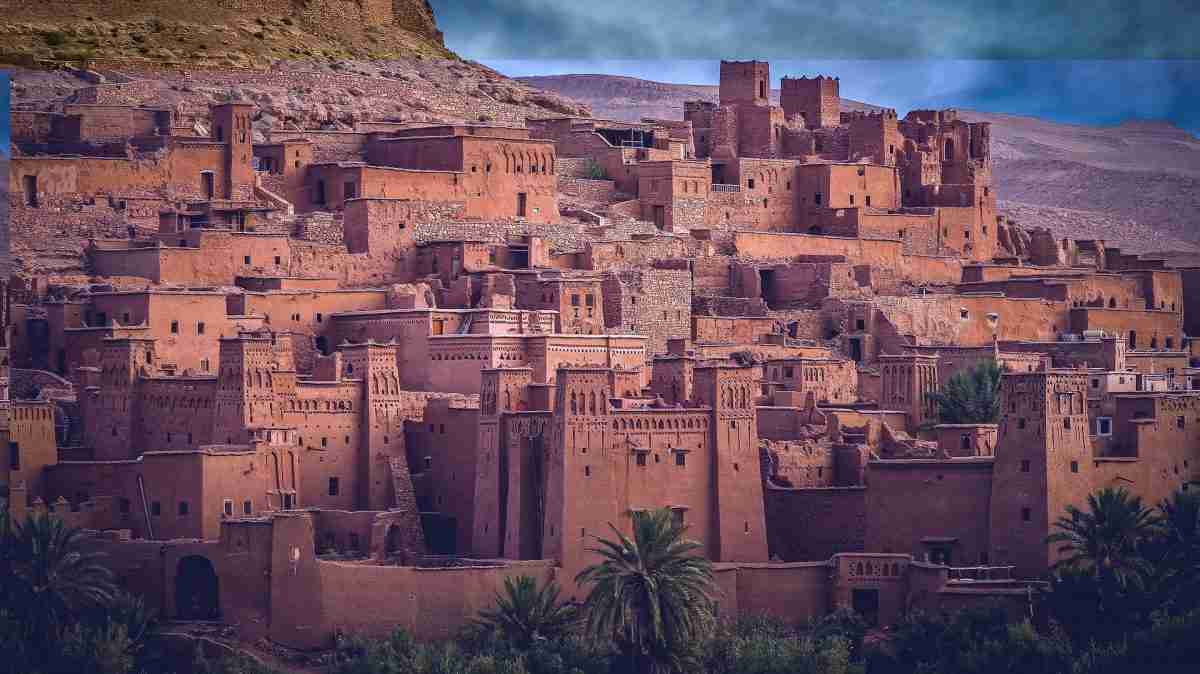
The Grand Tour of Morocco
The Grand Tour of Morocco is a private tour taking in the best of Morocco. Take your own escorted tour to discover this ancient land.
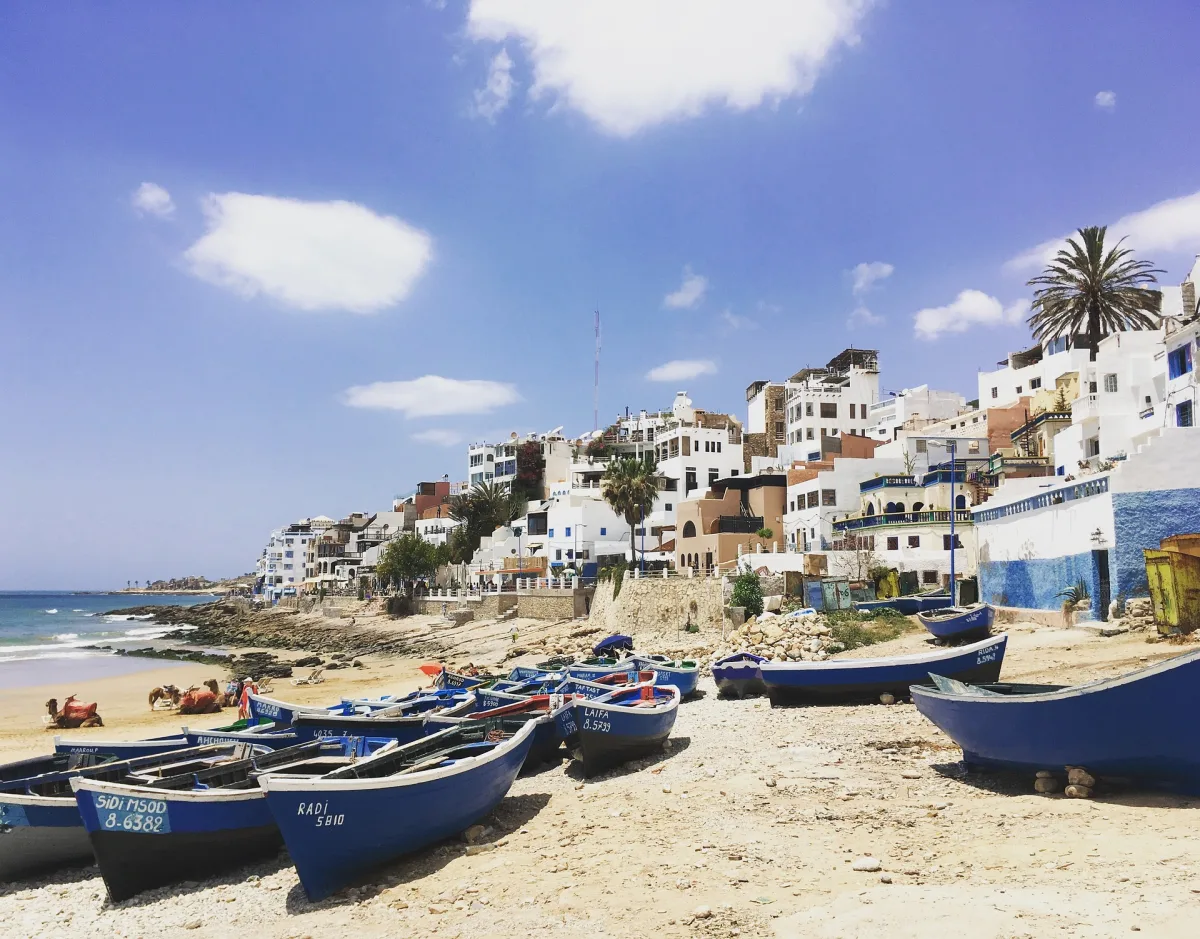
Yoga and South of Morocco Adventure
Embark on a soul-soothing 10-day journey from Marrakech, immersing yourself in a tour that combines the art of yoga with the wonders of Morocco's rich cultural heritage.
Discover Morocco with Confidence
On one of our escorted tours of Morocco, you encounter a country that blends history, culture, and natural beauty in a way few destinations can match. Its vibrant cities, sweeping deserts, and stunning coastlines create experiences that captivate and inspire. Every journey offers something unique, whether you seek adventure, relaxation, or cultural immersion.
Morocco’s charm lies in its contrasts. Bustling medinas sit beside tranquil gardens, and ancient traditions coexist with modern creativity. From the rhythmic call to prayer echoing through narrow streets to the scent of spices drifting from market stalls, every moment feels alive with possibility. With expert guidance and thoughtful planning, escorted tours of Morocco allow you to explore these wonders with ease and confidence.
Explore Morocco’s Iconic Cities
One of the most memorable aspects of an escorted tour of Morocco is discovering its cities, each with a distinct personality. Marrakech, often called the “Red City,” pulses with energy. Its souks brim with colour and sound, offering everything from handwoven rugs to fragrant spices. Architectural treasures such as the Koutoubia Mosque and Saadian Tombs reveal centuries of artistry. For a quieter escape, the Jardin Majorelle enchants with vivid blues and lush greenery, once home to French painter Jacques Majorelle and later restored by Yves Saint Laurent.
Fes, Morocco’s oldest imperial city and a UNESCO World Heritage Site, offers a different rhythm. Its vast medina, one of the world’s largest car-free zones, invites exploration on foot. Here, you encounter intricate monuments like the Al Quaraouiyine Mosque and Bou Inania Madrasa, alongside workshops where craftspeople practise skills passed down through generations. Pottery, weaving, and leatherwork remain central to daily life, and visitors often leave with a deeper appreciation for these enduring traditions.
Natural Wonders Beyond the Cities
Morocco’s landscapes are as compelling as its urban centres. The Sahara Desert stands as a highlight for many travellers. Imagine riding a camel across golden dunes as the sun sinks below the horizon, painting the sand in shades of amber and rose. Nights in a traditional Berber camp offer starlit skies and music that speaks to the soul. These experiences create memories that linger long after the journey ends.
For those drawn to the sea, Morocco’s Atlantic and Mediterranean coasts provide a refreshing contrast to desert expanses. Essaouira, a charming port town, combines historic fortifications with sweeping beaches and a lively arts scene. It's Medina, with whitewashed walls and blue shutters, that feels both timeless and welcoming. Fresh seafood, served in bustling markets or harbour cafés, adds flavour to the coastal experience.
Immerse Yourself in Morocco’s Cultural Heritage
Culture in Morocco reveals itself through architecture, art, and everyday rituals. Palaces and museums offer windows into the country’s layered history. The Royal Palace of Casablanca exemplifies Moroccan design with its ornate gates and intricate tilework. Nearby, the Museum of Moroccan Judaism provides insight into a community that has shaped the nation’s identity for centuries. These visits enrich understanding and spark meaningful conversations about heritage and diversity.
Music and dance also play a vital role in Moroccan life. From the hypnotic rhythms of Gnawa to the elegance of Andalusian melodies, performances often accompany festivals and local gatherings. Joining these celebrations, even briefly, fosters connection and joy. Escorted tours of Morocco frequently include opportunities to experience such traditions firsthand, ensuring culture feels lived rather than observed.
Savour Morocco’s Culinary Delights
No journey through Morocco is complete without tasting its cuisine. Influenced by Berber, Arab, and French traditions, Moroccan food balances bold flavours with comforting textures. Tagines, slow-cooked in clay pots, combine tender meat or vegetables with spices like cumin and saffron. Couscous, often served with seasonal vegetables, remains a staple of family meals. For those with a sweet tooth, pastries filled with almonds and honey provide a perfect finish.
Regional specialities add variety to the culinary landscape. In coastal towns, freshly grilled fish pairs beautifully with zesty salads. In mountain villages, hearty soups warm travellers after a day of exploration. Food tours included in escorted tours of Morocco often feature market visits and cooking demonstrations, turning meals into immersive cultural experiences. Sharing dishes with locals transforms dining into a celebration of hospitality and tradition.
Why Choose Escorted Tours of Morocco?
Planning a trip to Morocco can feel daunting, especially for first time visitors. Language differences, transport logistics, and cultural nuances may raise questions. Escorted tours of Morocco remove these barriers, offering expert guidance and curated itineraries that balance structure with flexibility. You travel confidently, knowing every detail, from accommodation to transport, is thoughtfully arranged.
These tours cater to diverse interests. History enthusiasts, food lovers, and nature seekers all find experiences tailored to their passions. Accommodation ranges from modern hotels to traditional riads, blending comfort with authenticity. Transport options include private coaches and scenic drives through mountain passes, ensuring smooth transitions between destinations.
Local guides add depth to every moment. Their knowledge and warmth turn sightseeing into storytelling, making history and culture vivid and relatable. They share personal insights, answer questions, and create space for genuine interaction. Travelling with a group also fosters connection, as shared experiences often lead to lasting friendships.
Morocco Awaits
Morocco welcomes visitors with grace and generosity. Its landscapes, cities, and traditions offer endless inspiration for those willing to explore. Escorted tours of Morocco provide the ideal way to experience this richness, combining convenience with authenticity. Whether you wander through ancient medinas, ride across desert dunes, or savour a fragrant tagine under a starlit sky, the journey promises to be unforgettable.
Group and Tailormade Morocco Holidays
Our Local Travel Experts in Morocco

Our local travel experts in Morocco have a combined total of over 200 years’ experience in the tourism & events industry! They are very conscious of the impact of tourism on their land, and all strive to minimise any negative impact on the habitat. Supporting cultural heritage preservation is also very high on the list of the teams’ priorities. Their goal is to ensure that tourism goes beyond the all-inclusive resorts and over touristy places, working directly with the locals, and visiting off the beaten path destinations. The company believes that equality is the core of any successful business and female managers make up 70% of the office.
PLACES TO VISIT IN MOROCCO
Escorted Holidays to Morocco: A Culinary Journey
Embarking on one of our escorted holidays to Morocco means more than sightseeing, it’s an invitation to savour a cuisine that reflects centuries of cultural exchange. Moroccan food is a vibrant tapestry of flavours, aromas, and textures. From the bustling souks of Marrakech to the serene courtyards of Fes, every dish tells a story of heritage and hospitality. This culinary adventure promises to leave a lasting impression on every traveller.
Moroccan cuisine blends Berber, Arab, and Mediterranean influences, creating dishes that balance spice with subtlety. Meals are not just nourishment; they are social occasions where generosity and warmth take centre stage. Whether you’re sampling street food or dining in a traditional riad, escorted holidays to Morocco ensure you experience these traditions authentically.
Tagine: The Heart of Moroccan Cooking
No discussion of Moroccan food is complete without mentioning the tagine. This slow-cooked stew, named after the clay pot in which it is prepared, is a cornerstone of Moroccan cuisine. Tagines combine tender meat or fish with vegetables and a medley of spices such as cumin, cinnamon, and saffron. These flavours mingle during hours of gentle cooking, producing a dish that is rich, aromatic, and deeply satisfying.
Tagines vary by region and season. In Marrakech, you might enjoy lamb with prunes and almonds, while coastal towns favour fish tagines infused with preserved lemons and olives. Each variation reflects local produce and culinary traditions. On escorted holidays to Morocco, you often learn how to prepare a tagine yourself, guided by chefs who share family recipes and cooking secrets.
Couscous: A Staple with Endless Possibilities
Couscous holds a special place in Moroccan kitchens. This delicate grain, steamed to perfection, forms the base for countless dishes. Traditionally served on Fridays, couscous accompanies hearty stews of meat and vegetables, creating a meal that is both comforting and celebratory. Spices such as turmeric and paprika add colour and depth, while seasonal vegetables bring freshness to the plate.
During your escorted holiday, you may visit rural communities where couscous remains central to family life. Here, preparation is a communal activity, often involving several generations. Watching this process offers insight into Morocco’s emphasis on togetherness and tradition. Tasting couscous in such settings transforms a simple dish into a cultural experience.
Soups and Starters: A Warm Welcome
Moroccan soups provide a flavourful introduction to any meal. Harira, a robust blend of lentils, tomatoes, and spices, is particularly popular during Ramadan but enjoyed year-round. Served with fresh bread, it offers comfort and nourishment. Other favourites include bessara, a creamy fava bean purée, and shorba, a spiced broth enriched with vegetables and meat.
These dishes highlight Morocco’s resourcefulness and respect for seasonal ingredients. On escorted holidays to Morocco, you often sample these soups in local homes or traditional cafés, where recipes have been perfected over generations. Such encounters deepen your appreciation for the country’s culinary heritage while fostering genuine connections with its people.
Sweet Treats and Tea Traditions
Moroccan pastries bring sweetness to the table, often paired with mint tea, a drink that symbolises hospitality. Delicacies such as baklava, m’hencha, and sfenj showcase the artistry of Moroccan bakers. Layers of phyllo dough, honey, and nuts create textures that delight the senses. These treats appear at breakfast, during celebrations, or as an afternoon indulgence.
Mint tea, served in ornate glasses, is more than a beverage; it is a ritual. The act of pouring tea from a height reflects grace and generosity. Sharing tea offers a moment of pause, inviting conversation and connection. Escorted holidays to Morocco frequently include tea ceremonies, allowing travellers to experience this cherished custom firsthand.
The Role of Spices and Herbs
Spices define Moroccan cuisine, adding complexity and character to every dish. Cumin, ginger, turmeric, and paprika form the backbone of many recipes, while saffron and cinnamon lend subtle elegance. Herbs such as coriander and parsley provide freshness, balancing the richness of slow-cooked stews. Markets brim with vibrant spice displays, their colours and scents creating an unforgettable sensory experience.
Guided tours often include visits to these markets, where you learn how spices shape Moroccan cooking. Engaging with local vendors offers insight into traditional blends like ras el hanout, a mix that can contain over a dozen spices. These encounters turn shopping into storytelling, enriching your culinary journey.
Why Food Matters on Escorted Holidays to Morocco
Food is a gateway to understanding Morocco’s identity. Every dish reflects a history of trade, migration, and cultural exchange. By tasting, cooking, and sharing meals, you engage with traditions that have endured for centuries. Escorted holidays to Morocco make this engagement effortless, combining expert guidance with authentic experiences.
From hands-on cooking classes to market tours and family-style dinners, these holidays prioritise connection. You don’t just observe Moroccan life, you participate in it. This approach transforms a holiday into a meaningful exploration of culture, flavour, and community.
A Feast for the Senses Awaits
Moroccan cuisine is more than a collection of recipes; it is an expression of heritage and hospitality. From savoury tagines and fragrant couscous to sweet pastries and mint tea, every bite tells a story. Escorted holidays to Morocco invite you to savour these stories, creating memories that linger long after the journey ends. Whether you are a seasoned foodie or simply curious, Morocco offers a culinary adventure that will delight and inspire.
Group Travel to Morocco
Group travel to Morocco opens doors to experiences that go far beyond the ordinary. With local experts guiding the way, you gain access to authentic encounters that reveal the country’s heart and soul. For instance, imagine sharing a meal with Berber families in remote villages, where hospitality is a cherished tradition. Later, fall asleep under a canopy of stars in a desert camp, surrounded by the silence of the Sahara.
Local knowledge transforms every step of your journey. Moreover, trekking through the Atlas Mountains at a pace that suits your group allows you to move from village to village and meet people who call these rugged landscapes home. Along the way, markets invite exploration without pressure. Instead of hurried transactions, you experience genuine warmth—smiles, greetings, and conversations that make shopping a pleasure rather than a chore.
Immersive tours bring you closer to daily life in Berber communities. Here, routines revolve around food preparation, herding, and traditional crafts such as rug weaving. You don’t need to commit to a strenuous trek to enjoy these insights. In fact, our guides can lead you to villages where time slows, and traditions remain vibrant. These visits create opportunities for meaningful exchange, turning travel into connection.
Heading south, the road leads to the Sahara Desert—a destination that feels like another world. Desert exploration is more than a scenic excursion; it is an experience that stays with you forever. Vast dunes stretch to the horizon, and the dry heat carries a sense of tranquillity found nowhere else. As you journey deeper, you encounter nomadic communities whose resilience and resourcefulness offer a glimpse into a way of life shaped by the desert’s rhythm.
Small group tours of Morocco make these adventures accessible and enjoyable. Furthermore, travelling together fosters

